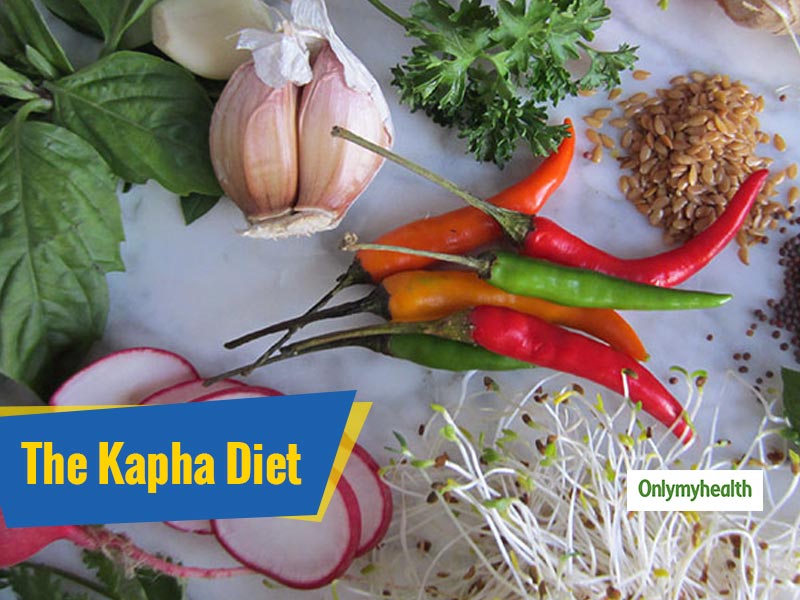
According to Ayurveda, we eat foods that are good for us when we’re balanced. But if our mind, body or spirit is out of sync, the connection to our body is lost. There are three types of doshas in Ayurveda in our mind/body state: Vata, Pitta, and Kalpa. When the doshas are balanced, we are fit and healthy. If we don’t balance your doshas, we develop the disease, which can be skin issues, poor digestion, insomnia, anxiety. The ayurvedic diet has been beneficial in determining your dominant dosha and eating specific foods to promote a balance between all three doshas. Here we look at the meaning and ayurvedic ways to balance it.
Table of Content:-
Also Read: Know Why Mind-Body Balance Is A Necessity To Good Health
What is the meaning of Kapha Dosha?

The three doshas( life forces) determine each individual’s life. It governs the structure of the body and holds the cells together forming the muscle, fat, bone, and sinew. The Kapha dosha promotes the joint function of the body. Kapha helps in increasing your stamina. Those who keep a balance have regular digestion. Emotionally, kaphas help you to be stress-free. They tend to keep a positive attitude.
Usually, Kapha is the combination of two elements which are earth and water. People with a Kapha dosha are generally calm, grounded, and loyal. Each dosha determines which food you should eat to promote inner balance. In the case of Kapha dosha, one should limit heavy foods like seeds, nuts, and oils in favour of fruits, vegetables, and legumes
- Individuals with Kapha dosha have issues with weight gain, depression or diabetes.
- The Kapha qualities consist of heavy, slow, steady, solid, cold, soft, and oily
Consume these foods to pacify the Kapha dosha:
Fruits

The fruits that pacify Kapha should be mildly sweet. Avoid exceptionally sweet or sour fruits like oranges or grapes or any that are watery, dense or heavy like bananas, coconut, dates, melons, pineapple, or plums. You can have apples, apricots, berries, applesauce, cherries, cranberries, mangos, peaches, pears, strawberries, raspberries, pomegranates. Eat the fruits at least one hour before or after meals
Also Read: Know Some Ayurvedic Benefits Of Cherry Fruit Juice
Vegetables
Vegetables that are best for Kapha should be pungent, bitter and astringent. Most of them include some combination of these tastes hence they are an important part of the diet to keep your Kapha diet balanced and effective. Vegetables cooked are easier to digest than raw ones, so it’s preferred to have a salad with raw veggies.
Avoid heavy, dense, oily, or watery vegetables like avocado, cucumber, olives, Pumpkin, squash, sweet potatoes, tomatoes, zucchini. Instead have asparagus, beet greens, beets, broccoli, bell peppers, cabbage, carrots, cauliflower, chillies, corn, onions, peas, kale, sprouts, eggplant, garlic, radishes.
Grains
Consume the light, dry and rough ones as they tend to be staples in our diets because they are somewhat heavy and nourishing so we need to minimize the qualities. Avoid grains like wheat, flours, bread, cooked oats, and pasta and eat smaller quantities of grains like barley, corn, cereal, buckwheat, flour, crackers, rice cakes, oats( dry), rye, quinoa.
Also Read: Cut The Belly Fat By Including These 3 Pulses In Your Daily Diet
Legumes
They are astringent that should be well-cooked and well-spiced to make them more digestible. Make sure they are not too heavy or oily. You can cook and consume Adzuki beans, lima beans, pinto beans, soy meats, navy beans, garbanzo beans, black-eyed peas, mung beans, toor dal, white beans. Avoid heavy ones such as kidney beans, soy flour, soy powder, soybeans, urad dal
Dairy
They should be taken at least one hour before or after any other food to reduce Kapha dosha. The milk is boiled and served with a pinch of turmeric or ginger to make it more digestible and less congesting. The best option is to go for goat’s milk as they are lighter. You can also have almond milk. The Kapha dosha diet consists of buttermilk, cottage cheese, ghee, yoghurt ( fresh and diluted). Avoid Butter, cheese, cow’s milk, frozen yoghurt, ice cream, sour cream.
Nuts and Seeds

They are generally heavy and oily, but there are few types of nuts and seeds that are acceptable in small quantities like almonds, charole nuts, chia seeds, flax seeds, pumpkin seeds. Avoid cashews, coconut, filberts, peanuts, and walnuts.
Spices

You can add a few spices to make your dish tastier. A variety of mild spices can help to strengthen the digestive part and improve metabolism. You can add these spices: Ajwan, basil, bay leaf, allspice, cumin powder, fennel, hing, neem leaves, peppermint, spearmint, saffron
Oils
Most oils are a bit heavy but adding a good quality organic oil can help the vegetables cook better. You can use corn oil, sunflower oil or ghee.
Read more articles on Ayurveda
How we keep this article up to date:
We work with experts and keep a close eye on the latest in health and wellness. Whenever there is a new research or helpful information, we update our articles with accurate and useful advice.
Current Version
